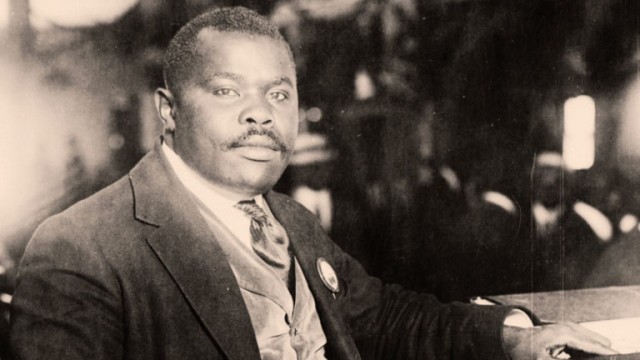Garvey, Marcus Mosiah
1887–1940
Pan-African leader
Marcus Mosiah Garvey played an important role in Pan-Africanism, a movement aimed at unifying blacks throughout the world in protest against racism and colonialism. At the time, most of Africa was controlled by European colonial powers. One of Garvey's greatest contributions was making the world aware of the problems that blacks in Africa faced under their rule.
Born in Saint Ann's Bay, Jamaica, Garvey founded the Universal Negro Improvement Association (UNIA) in 1914. The UNIA worked to draw attention to the concerns of black people. It also tried to improve the lot of all blacks by encouraging them to help themselves and each other. One of the goals of the UNIA was to create an African nation governed by blacks. This idea eventually became part of a “Back to Africa” movement that urged blacks in the United States and the West Indies to move to Africa.
In 1916 Garvey traveled to the United States. He was a charismatic leader, who became very popular in black communities. However, support for Garvey and his ideas fell sharply in the mid-1920s. His fiery attacks on colonialism had angered many colonial authorities, who banned him from Africa. In 1925 he was imprisoned on charges of U.S. mail fraud. Two years later he was deported from the United States and went to England. He died a relatively forgotten man. (See also Liberia, Negritude.)
